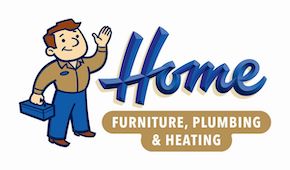Buying your first home is exciting. You’re probably juggling a dozen things or more to ensure you’re making the right choice. We believe that gaining insight into your future HVAC system is vital. The property’s HVAC system represents a significant investment and potential source of long-term costs, illustrating why a detailed inspection helps all first-time homebuyers.
In this guide, we’ll share seven tips for learning everything you can about a home’s heating and cooling system. And if you want a deeper opinion from the experts, don’t hesitate to contact Home Furniture, Plumbing & Heating. Our experienced team can weigh in on your options with industry insights that are second to none.
1. What HVAC System Are You Working With?
Start by determining what specific HVAC system the home includes. Furnaces tend to last longer than air conditioners, and some of the latest types of HVAC products like heat pumps boast average life spans that are even longer. Knowing the make and specific model gives you a clear understanding of how much maintenance it will require.
2. What Is the Current System’s Age?
Another good idea is to find out how old the HVAC system is when you’re looking at a potential new home. In general, HVAC systems tend to run for about 10-12 years. Learning its approximate installation date helps you anticipate future maintenance needs or when it might eventually stop working. Older systems are more prone to problems, so planning ahead of time for a replacement unit might be needed faster than expected.
3. Is the Warranty Active?
Check if the HVAC system is covered by a warranty. If it is, this can help with maintenance costs. HVAC warranties should take care of parts and labor, but the details in each policy will vary. Make sure you go over any terms that seem confusing to make sure you fully understand your coverage and any possible out-of-pocket costs.
4. Has the System Ever Been Professionally Serviced or Maintained?
Take a close look at the maintenance history of the HVAC system, if that information is accessible. This service history can demonstrate if the repair needs are high or how often maintenance is performed. Inquire about key tasks like filter changes, which is a positive sign indicating regularly scheduled tune-ups.
5. Do You Know Its Energy Efficiency Ratings?
Selecting a system with great energy efficiency means smaller utility bills and less of an impact on the environment. Check out the seasonal energy efficiency ratio (SEER) ratings for air conditioning as well as the annual fuel utilization efficiency (AFUE) for furnaces. High SEER ratings mean more efficient cooling throughout the season, while high AFUE ratings mean the fuel is efficiently converted into useable heat.
6. Have You Noticed Signs of Problems During Your Inspection?
Even without experience in HVAC systems, you can still take a moment to examine the HVAC system on your own. Look for potential issues that weren’t mentioned by the seller or real estate agent. This might consist of odd sounds, spots with uneven heating or cooling and attempts to hide any visible damage.
7. Is an Experienced HVAC Technician Available to Help?
If you’re not quite sure about the condition of the HVAC system, it’s wise to get an assessment and recommendation from certified HVAC professionals. They will be much more likely to catch things you might miss, including refrigerant leaks, wiring issues or damaged ductwork.
A Call with Home Furniture, Plumbing & Heating Helps Take the Stress Out of Your Home-Buying Journey
Choosing your first home should be thrilling, and Home Furniture, Plumbing & Heating wants to ensure it stays that way. Get in touch with us at 815-933-8213. We can talk about how our HVAC services help make this process smoother, giving you what you need to dive into home-ownership with confidence.
